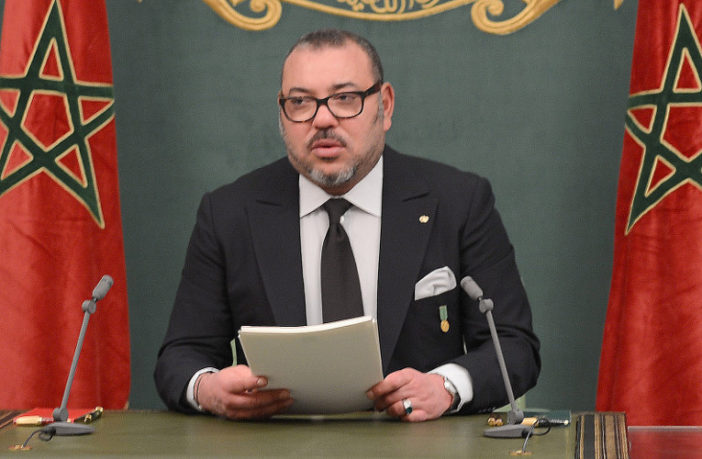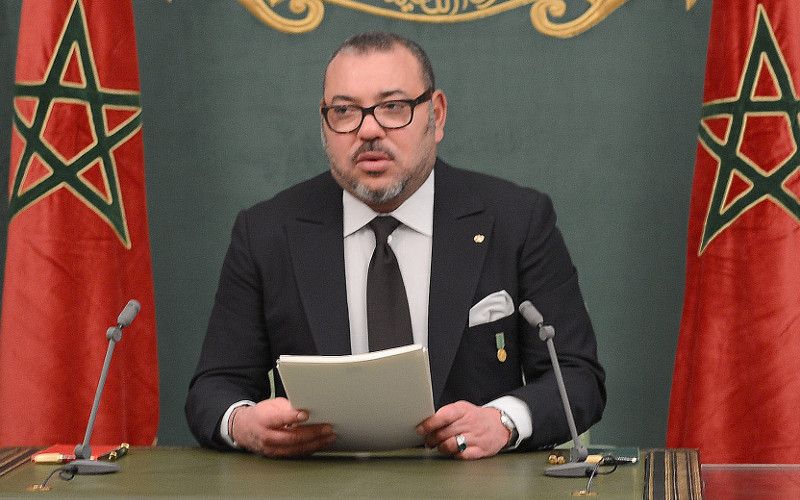Arab Times kw
THROUGHOUT the past seven years — known as the ‘Arab Spring era’, the Kingdom of Morocco emerged as one of the countries most capable of keeping up with people’s demands and development.
The Kingdom took advantage of the combination of modern European principles on good governance and distinguished relations between the King and the people. This relationship has not changed over the past seven decades, since the Independence Movement started to liberate the country from French protection during the reign of King Mohammed V.
If Mohammed V led the liberation revolution from inside or in exile, he is considered as the King of Liberation in the Moroccan conscience. This accolade was also bestowed on his successor, King Hassan II, as he completed the movement of his father through the ‘Green March’ in 1975. This happened as he strived to modernize the country and its institutions throughout the 14 years of his rule, until the country transformed into a political and economic center in North Africa and the Arab world. He also moved the wheels of education forward based on his conviction that knowledge is the fundamental pillar of a modern State.
Because ruling is continuous, King Mohammed VI, since assuming power in July 1999, has been working hard to reach phase three of the national renaissance. He ironed out obstacles to local and foreign investments and started the establishment of a giant industrial base, which is considered a big work shop bolstered with all the tools of stability anchored by flexible laws. He set up suitable facilities, especially in the areas of electricity and road network, such as the construction of the largest solar energy power plant in Ouarzazate City — the first of its kind in the world. This is in addition to using western technology in the cars industry and many more.
In this Arab country which enjoys continuous rule since 1666, the relationship between the ruler and the people is built on cooperation and allegiance which cannot be broken. The Moroccans under the leadership of their kings in the past centuries faced all kinds of attacks and coup attempts. They stood firm, holding on to their independence and the monarchy legitimacy.
Therefore, Moroccan history is full of stations through which its people defended their country, whether against coup movements, internal separation supported from outside or against direct occupation. The most famous of these stations is the Revolution of the King and the People.
In this well-established country, some people are trying to play with the sensitive cord of people’s demands to tear down what has been accomplished through the implementation of remarkable reforms in the past two decades in economic, political and development fields. Therefore, any event we see therein — no matter how small, the suspicious media camp puts it under the microscope to aggravate it; while they dismiss and brush aside the role of King Mohammed VI in handling issues and events with wisdom and turning a threat into a development opportunity.
The King did not wait for the so-called ‘Arab Spring’ to start the constitutional reform workshop. He preceded that with a series of reforms which formed a strong barrier to prevent the spread of fires from this volcano to his country with the support of the people.
Furthermore, in recent years, the voice of the King was heard as he shouted at corruption and the corrupt who represent the people. His speeches, in more than one occasion, were public calls addressed to everyone trying to obstruct the development of Morocco.
In a speech he delivered in July 2017, he said: “The development programs concerning humans and different projects do not meet our expectations. This is due to lack of joint action, national and strategic dimension; as well as inconsistency instead of harmony, disparagement and procrastination instead of entrepreneurship and concrete action.”
This speech, which he delivered in Hussaimah City, is considered the base from which all State institutions started focusing on the Moroccan countryside as a development resource. According to the popular blocs, this speech is a nightmare for the neglectful ones who refused to listen to the villagers’ complaints. This is the reason why such areas and the provinces witnessed the launching of a number of major projects last year, after lifting the immunity of the neglectful and corrupt.
Without a doubt, the tough method adopted by the King to combat corruption bore fruits as manifested by the ongoing construction and mega projects.
On the other hand, the King has exerted tremendous efforts over the last two decades to put his country back to its status as the gate to Africa by replacing it in the African Union or setting the right rules to solve the crisis in Western Sahara which Algeria used as an excuse to continue marketing its project to control the entire West Arab.
In such a State of institutions, the law is the judge especially on judiciary issues where there is no place for bargains. Thus, those who took advantage of some judicial verdicts to instigate chaos and set fire to the country — as the case in some Arab countries — want a dictator like Muammar Gaddafi or Saddam Hussein to transform Morocco into a big jail with numerous mass graves ending with the launching of a civil war.
Today, Morocco witnesses an era of cordiality and mercy launched by King Muhammad VI who knows well that political jails and torture do not bring about a just State. He believes the law is the right path leading to the creation of an advanced society. Opportunities are still available in Morocco, unlike some other countries.
Morocco is still working hard to get rid of the negative consequences of the era of occupation and solve problems caused by suspicious Arab or international bodies. It is heading towards the path of challenges conducted by the King who is not contented with reports submitted to him in his palace, as he connects directly with the people to listen to them and seek cooperation in building the nation. The King is the only person who has the right to take final decisions, particularly amnesty decisions whenever he sees a social necessity.
By Ahmed Al Jarallah
Editor-in-Chief, the Arab Times








